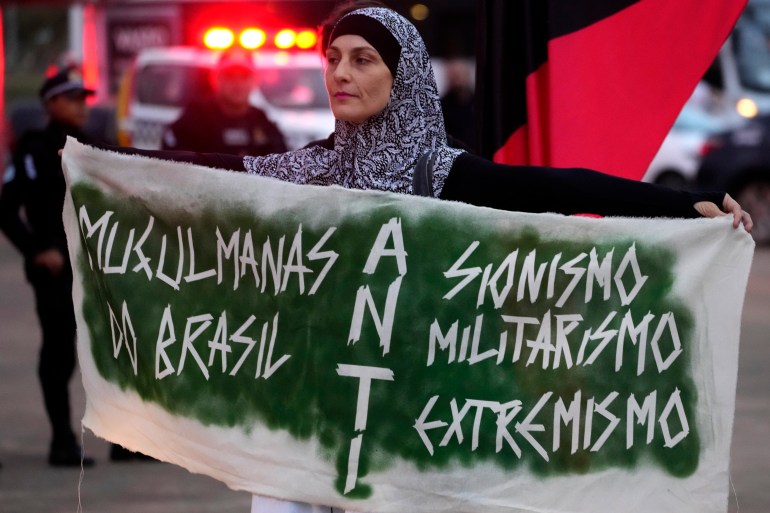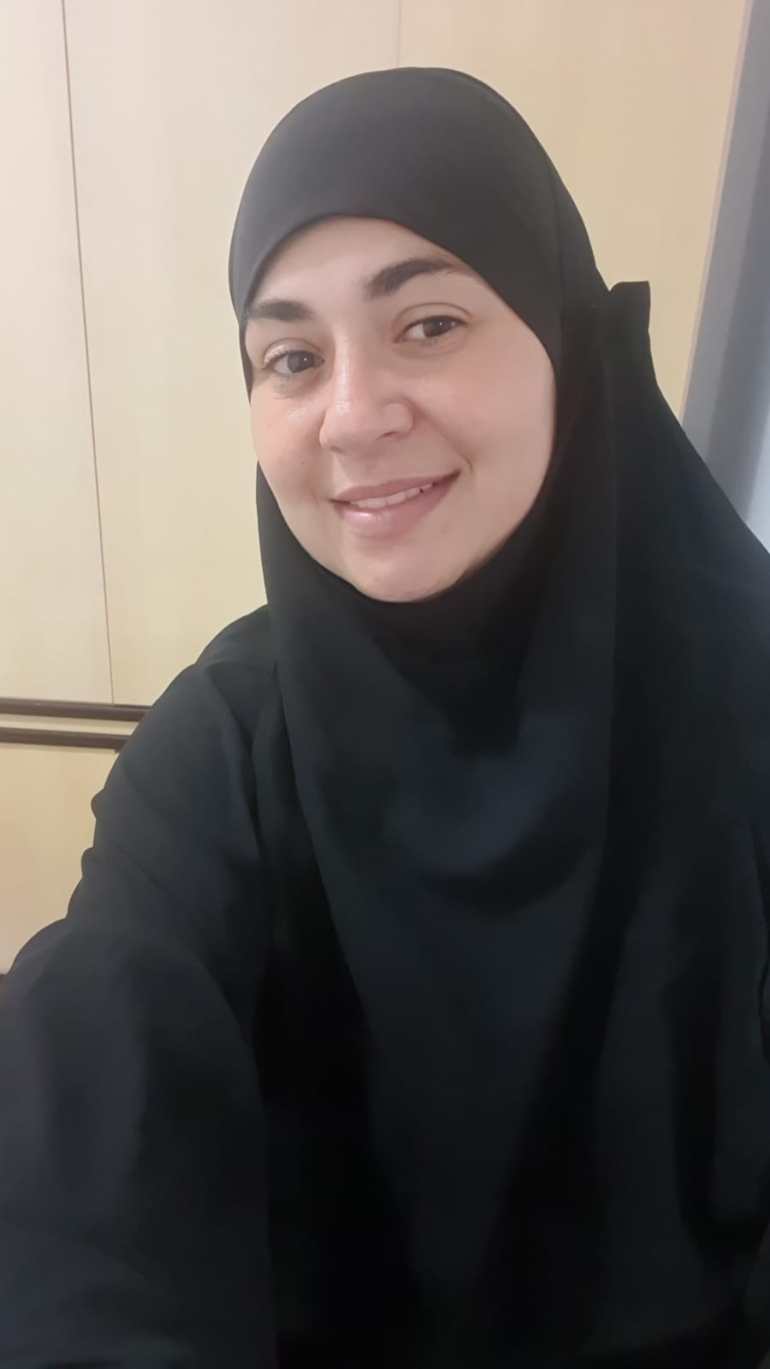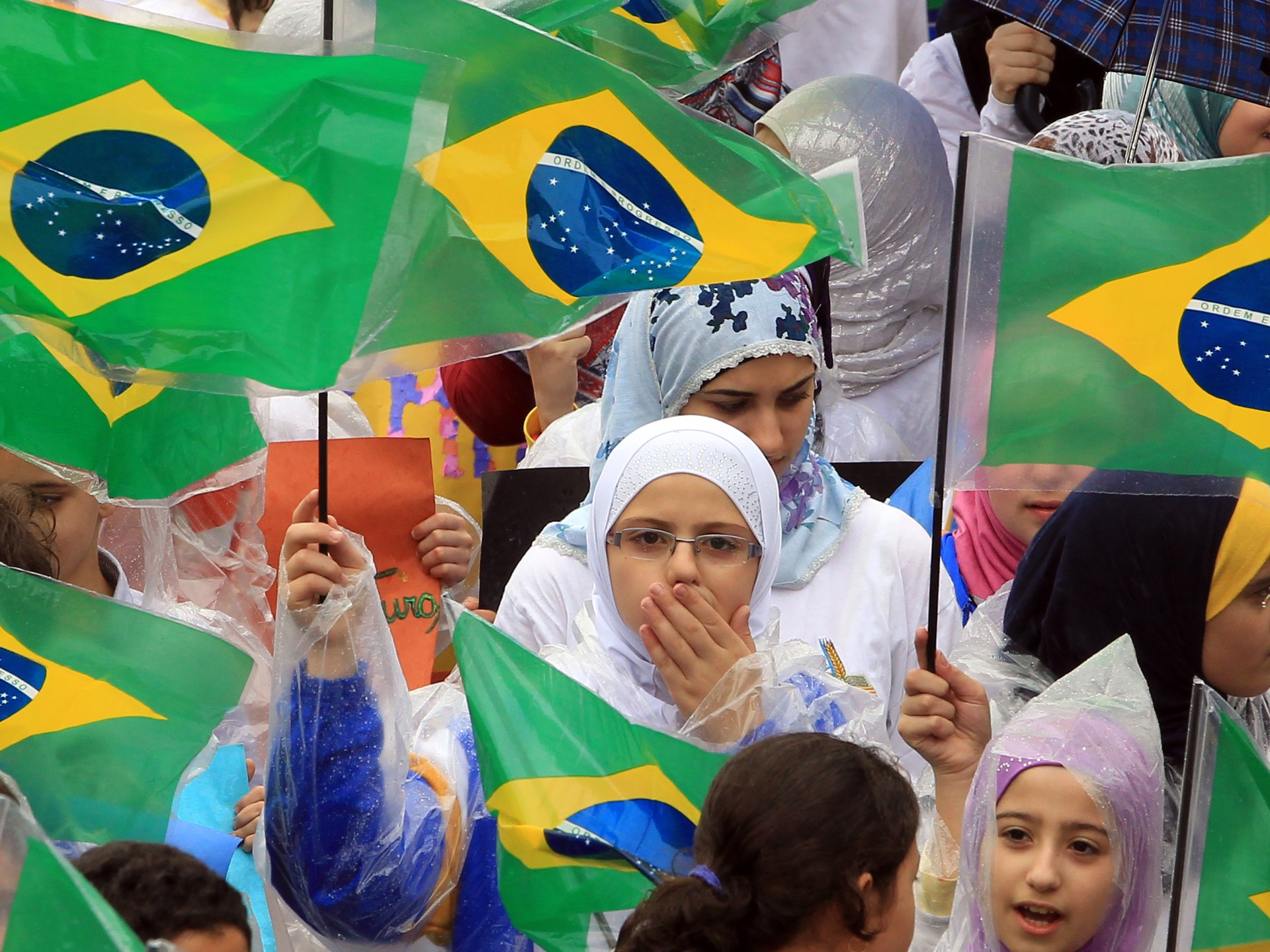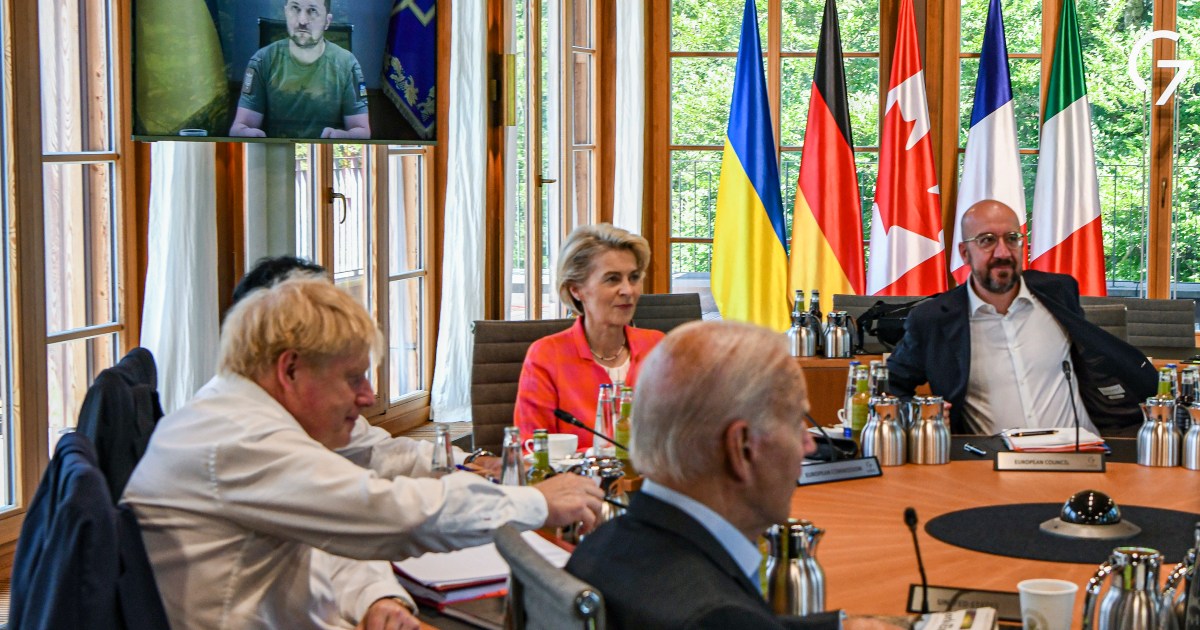‘Outraged’: Brazilian Muslims face growing Islamophobia over Gaza war
Sao Paulo, Brazil – It wasn’t unusual for patients to arrive in a foul temper at the hospital emergency room in São Paulo, Brazil, where physician Batull Sleiman worked.
After all, every day brought new medical crises, new requests for urgent care. Sleiman had seen it all. But she was not expecting the level of anger she received several weeks ago.
A patient had arrived in her examination room frustrated over the time he spent waiting for a doctor’s care. Sleiman recalled his issue was “not urgent”. Still, as she treated him, he accused her of being impolite.
“You’re being rude with me because you’re not from Brazil,” Sleiman remembers him saying. “If you were in your country…”

Sleiman said she turned away rather than hear the rest. The daughter of Lebanese immigrants, she believes the man reacted the way he did because of one thing: her hijab.
“I was surprised and outraged,” Sleiman told Al Jazeera. But, she added, the atmosphere in Brazil had grown more tense since the war in Gaza had erupted. “I’ve been noticing that people have been staring more at me on the street since October.”
But Sleiman is not alone in feeling singled out. As the war in Gaza grinds on, Brazil is one of many countries facing increased fears about religious discrimination, particularly towards its Muslim community.
A survey released last month from the Anthropology Group on Islamic and Arab Contexts — an organisation based at the University of São Paulo — found that reports of harassment among Muslim Brazilians have been widespread since the war began.
An estimated 70 percent of respondents said they knew someone who experienced religious intolerance since October 7, when the Palestinian group Hamas launched an attack on southern Israel, killing 1,140 people.
Israel has since led a military offensive against Gaza, a Palestinian enclave, killing more than 21,000 people. That response has raised human rights concerns, with United Nations experts warning of a “grave risk of genocide”.
While Palestinians are an ethnic group — and not a religious one — the University of São Paulo’s Professor Francirosy Barbosa found that the events of October 7 resulted in incidents of religious intolerance in Brazil, as Palestinian identity was conflated with Muslim identity.
She led November’s survey of 310 Muslim Brazilians. Respondents, she explained, reported receiving insults that reflected tensions in the Gaza war.
“Many Muslim women told us they are now called things like ‘Hamas daughter’ or ‘Hamas terrorist’,” she told Al Jazeera.
The survey, conducted online, also found that many of the respondents also had firsthand experience with religious intolerance.
“About 60 percent of the respondents affirmed that they suffered some kind of offence, either on social media or in their daily lives at work, at home or in public spaces,” Barbosa said.
Women in particular, the study noted, reported slightly higher rates of religious intolerance.

The question of Islamophobia was catapulted into the national spotlight this month when a video spread on social media appearing to show a resident of Mogi das Cruzes, a suburb of São Paulo, rushing towards a Muslim woman and grabbing at her headscarf. The video was even broadcast on news outlets like CNN Brasil.
One of the women involved, Karen Gimenez Oubidi, who goes by Khadija, had married a Moroccan man and converted to Islam eight years ago. She told Al Jazeera that the altercation involved one of her neighbours: She was upset after their children had argued.
“She came down with her brother and was very aggressive. She called me a ‘cloth-wrapped bitch’. I soon realised it was not only about the kids’ fight,” Gimenez Oubidi said.
Neighbours attempted to separate the two women. One man in the video, however, grabbed Gimenez Oubidi from behind, wrapping an arm around her throat to hold her down. Gimenez Oubidi identified him to Al Jazeera as her neighbour’s brother.

“He said a few times to me, ‘What are you doing now, terrorist?’ He didn’t say it loudly: It was just for me to hear. He knew what he was doing,” Gimenez Oubidi said. She added that the fight her son had had with the neighbour’s child was also over her hijab.
The woman who attacked Oubidi, Fernanda — she said she did not want her full name revealed for fear of a public backlash — disputed this account.
Fernanda said her son had been hit by Oubidi’s son in the playground, and while she had physically attacked Fernanda, she had not referenced her religion. “I never insulted her for her religion. That simply didn’t happen. I’d never do something like that,” she said.
A government report from July noted that religious intolerance “occurs most intensely against those of African origin, but it also affects Indigenous, Roma, immigrant and converted individuals, including Muslims and Jews, as well as atheist, agnostic and non-religious people”.
Brazil is predominantly Christian, home to an estimated 123 million Catholics — more than any other country in the world.
But it has a long-standing, if smaller, Muslim population. Academics believe Islam arrived in the country with the transatlantic slave trade, as kidnapped African Muslims continued to practice their religion in their new surroundings.
One group of enslaved Muslim Brazilians even launched a rebellion against the government in 1835, called the Malê uprising — a term derived from the Yoruba word for Muslim.
Brazil’s Muslim population grew with waves of immigration in the late 19th and 20th centuries, particularly after the collapse of the Ottoman Empire. Arab immigrants, particularly from Lebanon, Syria and Palestine, came to know Brazil as their home.
The exact number of Muslims in Brazil today is unknown. The 2010 census counted 35,167 people identified as Muslim, but in the years since, other estimates have come out, setting the population as high as 1.5 million.
Some advocates, however, point to other demographic and political trends as setting the stage for tensions to rise between Muslim and non-Muslim groups.
Evangelical Christians make up the fastest-growing religious segment in Brazil today, comprising about a third of the population. Their numbers have turned them into a significant political force.
Evangelical voters were credited with helping to elect far-right President Jair Bolsonaro in 2016, with polls showing 70 percent supporting him.
During his failed 2022 re-election bid, Bolsonaro repeatedly invoked Christian imagery in his appeals to voters, framing the race as a “fight of good against evil”.
Mahmoud Ibrahim, who heads a mosque in Porto Alegre, believes that the us-versus-them mentality has translated into antagonism against his community.

At recent protests against the war in Gaza, he said onlookers called him a “terrorist” and “child rapist”.
“Evangelicals and Bolsonarists insult us all the time. They even chased a person who was going to our demonstration the other day,” he said.
Ibrahim added that he had heard of at least one woman who was left bleeding after attackers attempted to tear her hijab off, causing the pins in the scarf to dig into her skin.
Girrad Sammour heads the National Association of Muslim Jurists (ANAJI), a group that offers legal support in cases of Islamophobia. He said the number of reports to ANAJI has always been high, but since the start of the war on October 7, it has exploded.
“There was a rise of 1,000 percent in the denunciations that we received,” he told Al Jazeera, crediting some to inflammatory remarks from far-right evangelical pastors.
But Barbosa, the survey leader, believes there are ways to lessen the hatred and suspicion directed at Muslim Brazilians. She pointed to a lack of media representation as an example.
“Few Palestinian leaders and experts in the Middle East with a pro-Palestine view have been invited by TV shows, for instance, to comment on the conflict in Gaza,” Barbosa said.
But she also encouraged Muslim Brazilians to speak up about their experiences, in order to raise awareness.
“What is not denounced doesn’t exist for the government,” she said. “Only if the authorities know what is happening will they be able to take adequate measures, like investing in education against religious intolerance.”




